updated on 9 April 2021
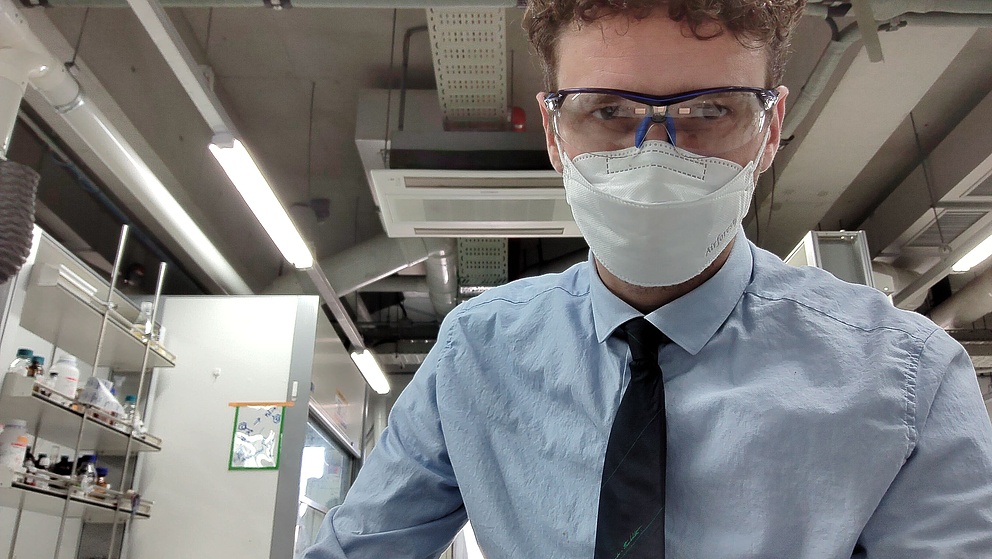

Contact
Press, Communications and Marketing
Tel.: +49 228 833-144
Fax: +49 228 833-441
presse[at]avh.de
We start with the molecular chemist Florian Mulks. Back in 2020, he had planned his stay in the USA as a Feodor Lynen Research Fellow. Then the corona pandemic came. But a solution was found in the Humboldt Network.
January 2021. Florian Mulks has been living and working in Daejeon, the fifth largest city in South Korea, for three months. At the end of a busy day at work at the Korea Advanced Institute of Science and Technology (KAIST), the molecular chemist heads home. Faced with heavy snowfall, strong winds and temperatures far below freezing, he has to push his bicycle on this evening. "Just how harsh winter can be in South Korea wasn’t clear to me before I got here", said the post-doctoral candidate who is conducting research at KAIST as a Feodor Lynen Research Fellow in the working group led by Humboldt Research Award winner Mu-Hyun Baik. An ocean and approximately 9,800 kilometres lie between Daejeon and the place where Florian Mulks originally wanted to embark on his research fellowship – the University of California in San Diego.
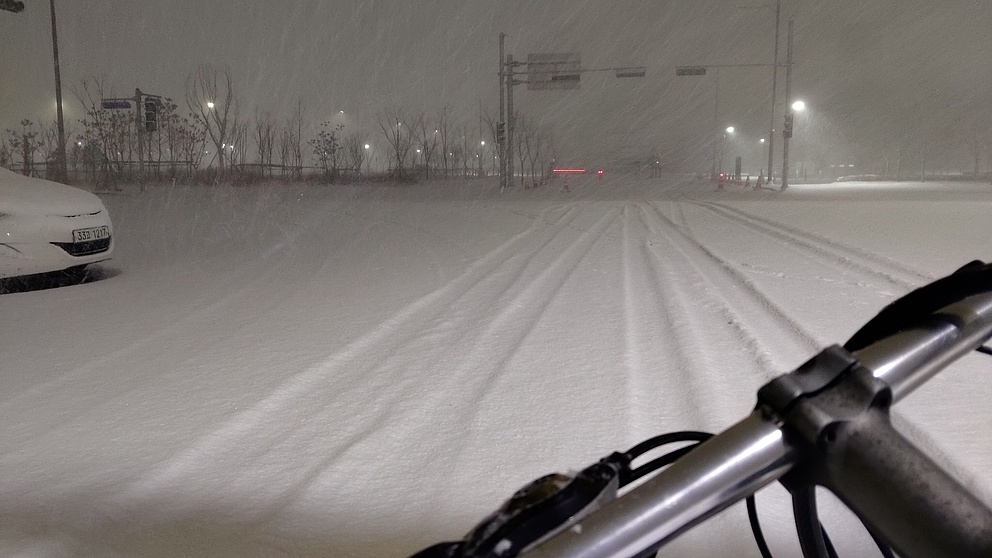
No time to lose
Headwinds and turbulence also marked the months before his fellowship began. "When it became increasingly clear last summer that undertaking a research stay in the USA would be impossible for the time being due to the pandemic, I had to act fast", said Mulks. Together with his Humboldt host in California, the multi-award-winning chemist Guy Bertrand and the Korean Humboldtian Mu-Hyun Baik, whom both already knew from their network, Mulks developed an alternative plan which he presented to the Humboldt Foundation. The idea: The first part of his research stay would be done in Daejeon and the second part – when the pandemic situation permits – in San Diego. "Thanks to the Humboldt Foundation’s endless flexibility, I was able to start my fellowship with only a few weeks’ delay", said Mulks.
The example of Florian Mulks shows that in these times it is good to be resourceful and, if possible, adjust your original plans to external conditions.
Flexibility was called for
A crucial phase during which he was in close contact with the Humboldt Foundation. "For us, it was clear from the start: We don’t leave the individuals we sponsor up to their own devices", says Katrin Amian, Division Head in the Sponsorship and Network Department at the Foundation. In 2020, the Feodor Lynen Research Fellowship Programme alone sponsored 293 fellows in 22 host countries throughout the world. For her, it was important to find fast and creative solutions. Within just a few weeks, Amian and her colleagues put together a package with a number of special rules for all Humboldt Fellows. As a result, researchers – like Florian Mulks whose fellowship is technically only for research stays abroad – could already start working from home on their projects. "Instead of losing valuable time, I could already start working on the theoretical part of my project in August from my home in Heidenheim", said Mulks.
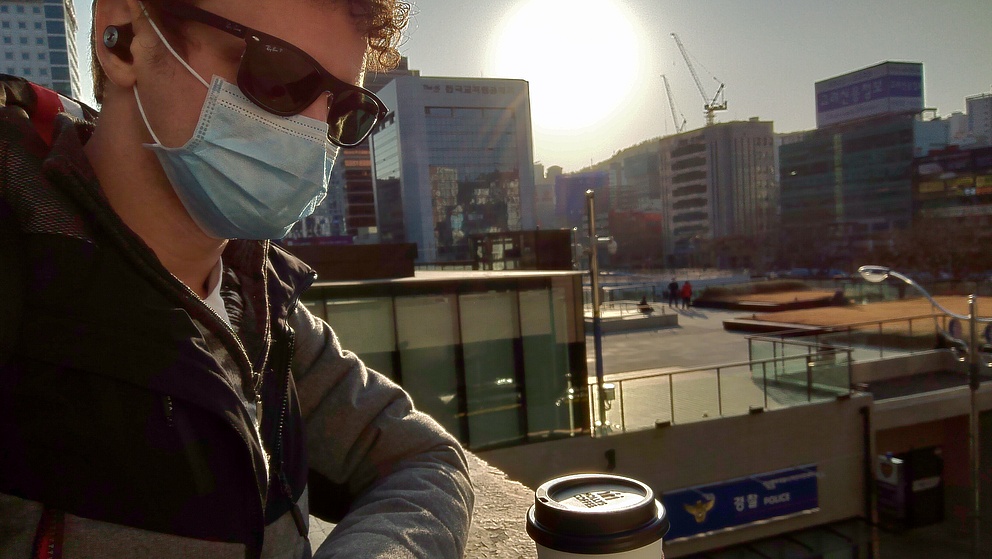
Is the corona pandemic putting a brake on research?
Since the very start of the pandemic, Katrin Amian has conducted numerous consultations which have made it clear just how much the restrictions on mobility and the lockdown rules make fellows’ work harder. What Amian has observed: “Research is advancing more slowly than usual in many areas because labs are closed or publications have to be postponed due to a lack of childcare.” According to Amian, it is not foreseeable how the effects of the pandemic will impact research careers in the long term. She notes: "The example of Florian Mulks shows that in these times it is good to be resourceful and, if possible, adjust your original plans to external conditions." For Mulks, having his plans changed at short notice also brought a few benefits: "As a result, I am getting acquainted with different areas of chemistry and can add the methods they use to my toolkit." Synthesis chemistry and basic research are the focus of research in San Diego, while the South Korean research group’s special fields are computational chemistry and electrochemistry.
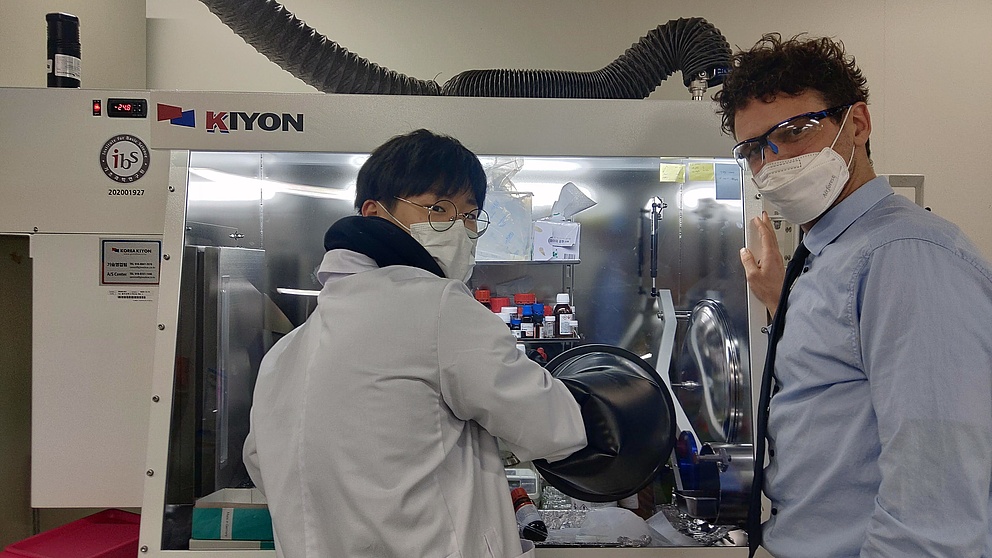
Cultural open-mindedness
Mulks has been a guest researcher in the KAIST research group since November 2020. Thanks to the low case numbers there, he can pursue his research without restraints. "There are currently about eight new cases of Covid-19 a day on average in Daejeon", said Mulks, who was placed in 14-day quarantine immediately upon arrival. As long as there’s no snowstorm raging, Mulks rides his bike to work. One ten-minute stretch of his ride on the promenade along Gapcheon River passes wooded hills and apartment buildings that remind him of prefabricated socialist-era high-rises. Mulks, who heads a three-person team of doctoral candidates, has his office on the fifth floor of the main KAIST building. What he finds striking about the collaboration with his Korean colleagues is how openly people deal with criticism across hierarchy levels. Mulks: "I find this openness great. This is a good thing, particularly in science and research, when people talk about problems."
From his office space he can look directly into the lab where he spends half of his 60-hour work week. Mulks is working on carbon-based surface coatings which use specific molecules to capture and store CO2 from the ambient air. Such coatings could in future be used as synthetic materials in, for example, plastic bags or laptop sleeves and, in the process, reduce greenhouse gases. Mulks says: "No matter how you look at it, we have to become CO2 neutral at some point. For the chemistry field, the search for new raw materials that are better for the environment in the long term is imperative."
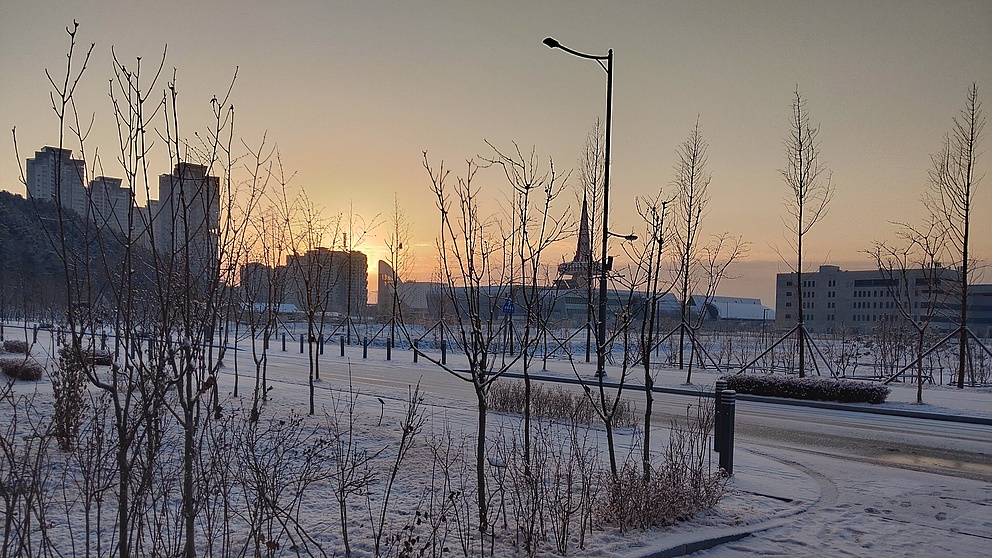
Beauty of the opportunity
What drives Mulks in his work: "There’s chemistry in everything. I like conducting research into the foundations of our world. What’s beautiful about science is, in addition to this, that it’s our job to do something to advance humankind. This motivates me, even if this succeeds in only one out of ten thousand projects," according to Mulks. If everything goes well with his visa application and the Covid-19 situation permits, he will focus on conducting basic research in San Diego starting this summer. "With basic research, we often look into things simply for the sake of looking. In this regard, science – for me – is sometimes like art", said Mulks, who was inspired by an artist friend to take up painting two years ago. Mulks: “You do many things primarily because it is a challenge – searching for a reason or for a serendipitous coincidence that will change the world.”
Author: Esther Sambale

The Feodor Lynen Research Fellowship
supports you – postdoc or experienced researcher – with your research project abroad, even during the Coronavirus pandemic.
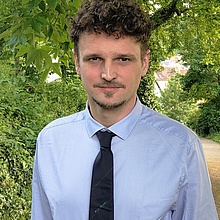
Dr Florian Mulks did his doctorate in 2018 in organometallic chemistry under Stephen Hashmi at Heidelberg University. He gained extensive experience in a wide range of specialist areas in chemistry at the University of Oxford, University of Groningen, University of Strathclyde (Glasgow), University of Cambridge and University of Bern. Mulks studies carbon-based molecules and surface coatings that will capture CO2 from ambient air, store and put it to other uses.
As a Feodor Lynen Research Fellow, Florian Mulks is currently working at KAIST in Daejeon in the research group led by the chemist and Bessel Research Award winner Mu-Hyun Baik. He will probably spend the second part of his fellowship with Humboldt Research Award winner Guy Bertrand at the University of California, San Diego, starting this summer.
